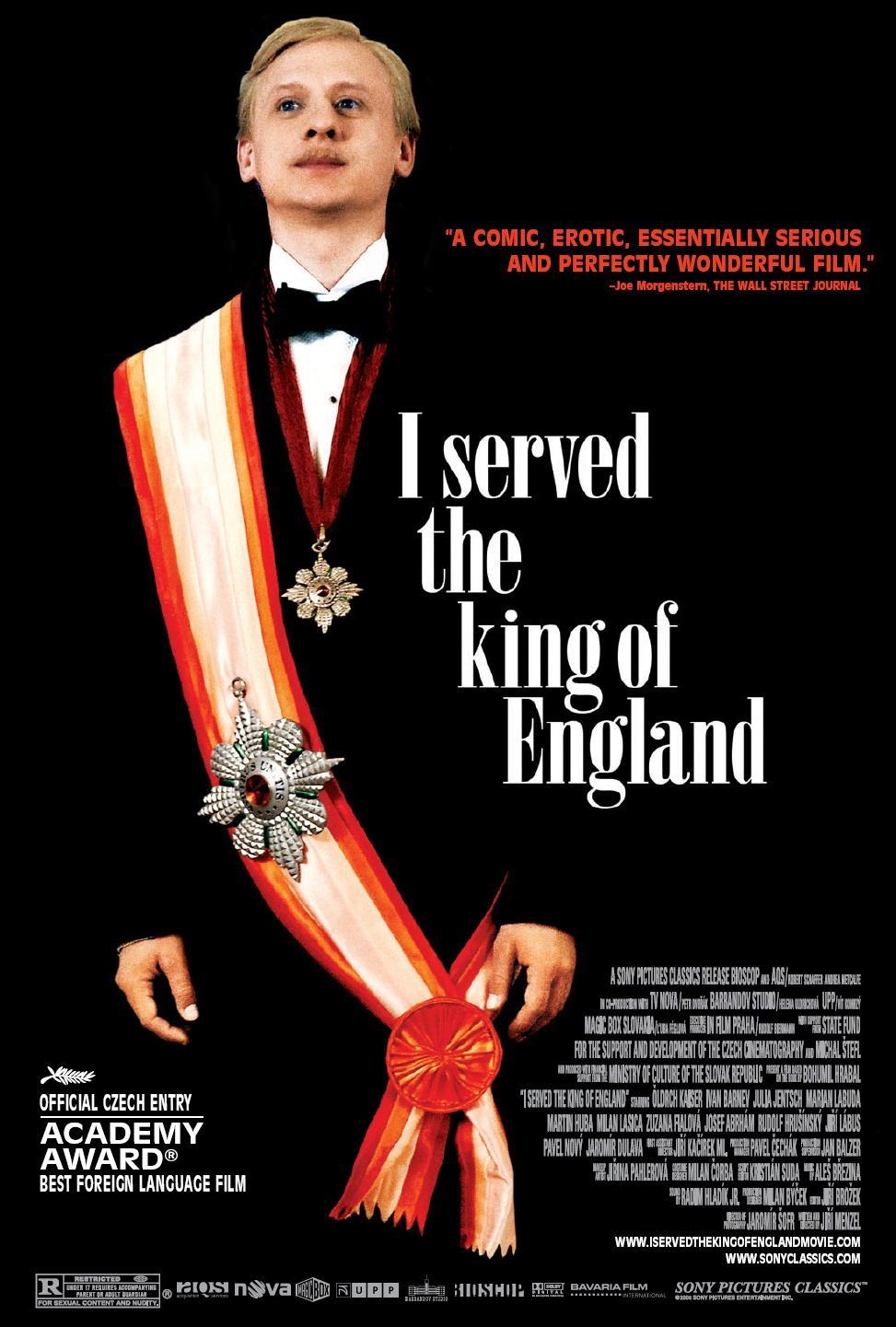
- This event has passed.
I SERVED THE KING OF ENGLAND @First-Fri. Free Film Series at the Peace Center of Delaware County
September 7, 2018 @ 7:00 pm - 9:30 pm
FreeI Served the King of England
(2008, Czechoslovakia, 120 minutes. Rated R for sexual content and nudity. Language: Czech with English subtitles. Directed and written by Jiri Menzel, based on the novel I Served the King of England by Bohumil Hrabal.)
For more information and directions to the Peace Center of Delaware County, visit www.delcopeacecenter.org or call 484-574-1148. Doors open at 6:30p.m. for light refreshments.
About I SERVED THE KING OF ENGLAND…
International film goers were introduced to Czech director Jiri Menzel through his whimsical 1968 Oscar-winner Closely Watched Trains.
The late film critic Roger Ebert said of Menzel’s 2008 I Served the King of England, a dark comedic satire, with a lot of whimsy throughout: “If you’re charged up emotionally, you’d better lie down for an hour or two before going to see it. It requires an audience at peace with itself…” You can see for yourself if you agree.
Czechoslovakia, 1963. Jan Díte is released from prison after serving 15 years. He goes into semi-exile in a deserted village near the German border. In flashbacks, he tells his story: He’s a small, clever, and quick-witted young man, stubbornly naïve, a vendor at a train station. Thanks to a patron, he becomes a waiter at upscale hotels and restaurants. We see him discover how the wealthy tick and how to please women. He strives to be a millionaire with his own hotel. Is this his ticket to wealth or his undoing?
Menzel apparently sees the pecking order in the dining room as mirroring the Nazi party. Jan soon wants more than to serve, he wants to own and accumulate. He marries a fiercely Aryan woman who worships Adolph Hitler and enlists in the German army, leaving Jan a box of rare stamps she looted from the homes of Jews. He happily uses them to buy the hotel. Do we see a pattern here? Didn’t the communists appropriate the Jewish wealth, factories, businesses, and art earlier stolen by the Nazis?
How this works out, you are left to discover. A metaphor for the Jan Dite character runs through the film. He is a shallow man absorbed with wealth while the society that feeds his ambitions becomes a deep, dark hole. Does this sound like a certain someone today who acts childishly, craving everything, plus approval and adoration, regardless of the harm done to others?

